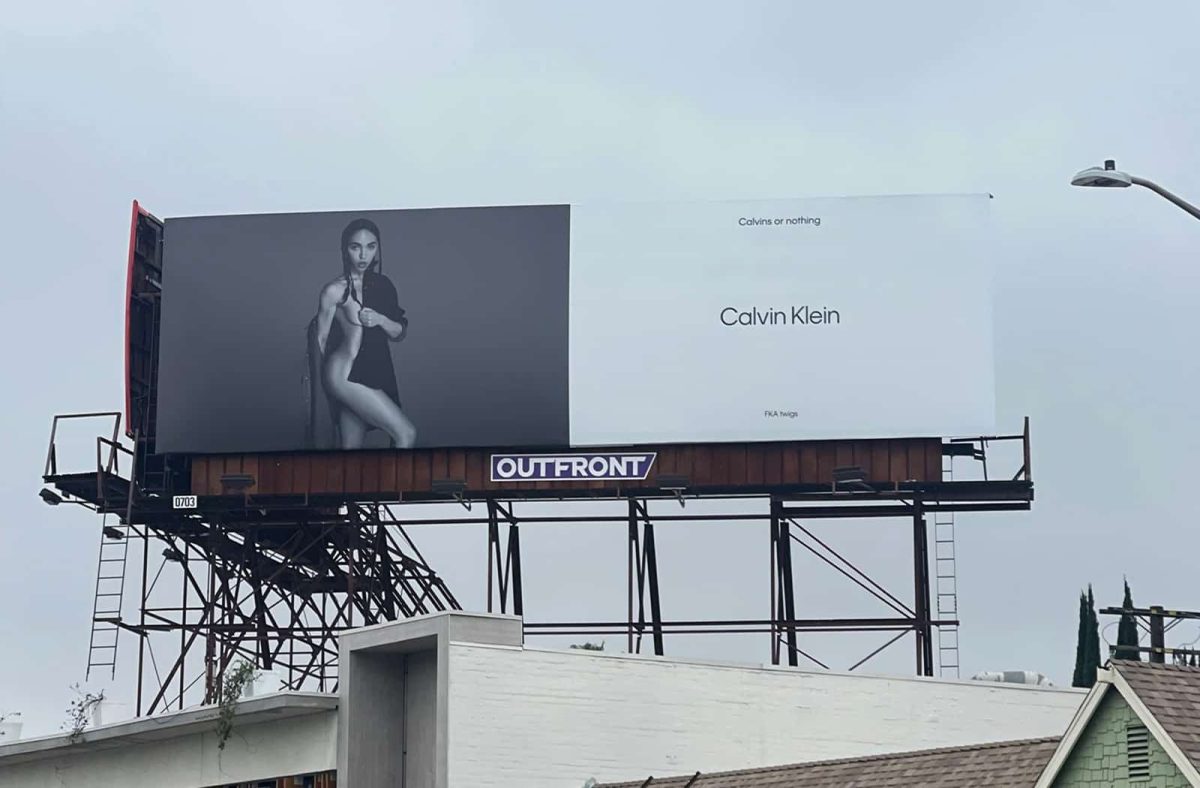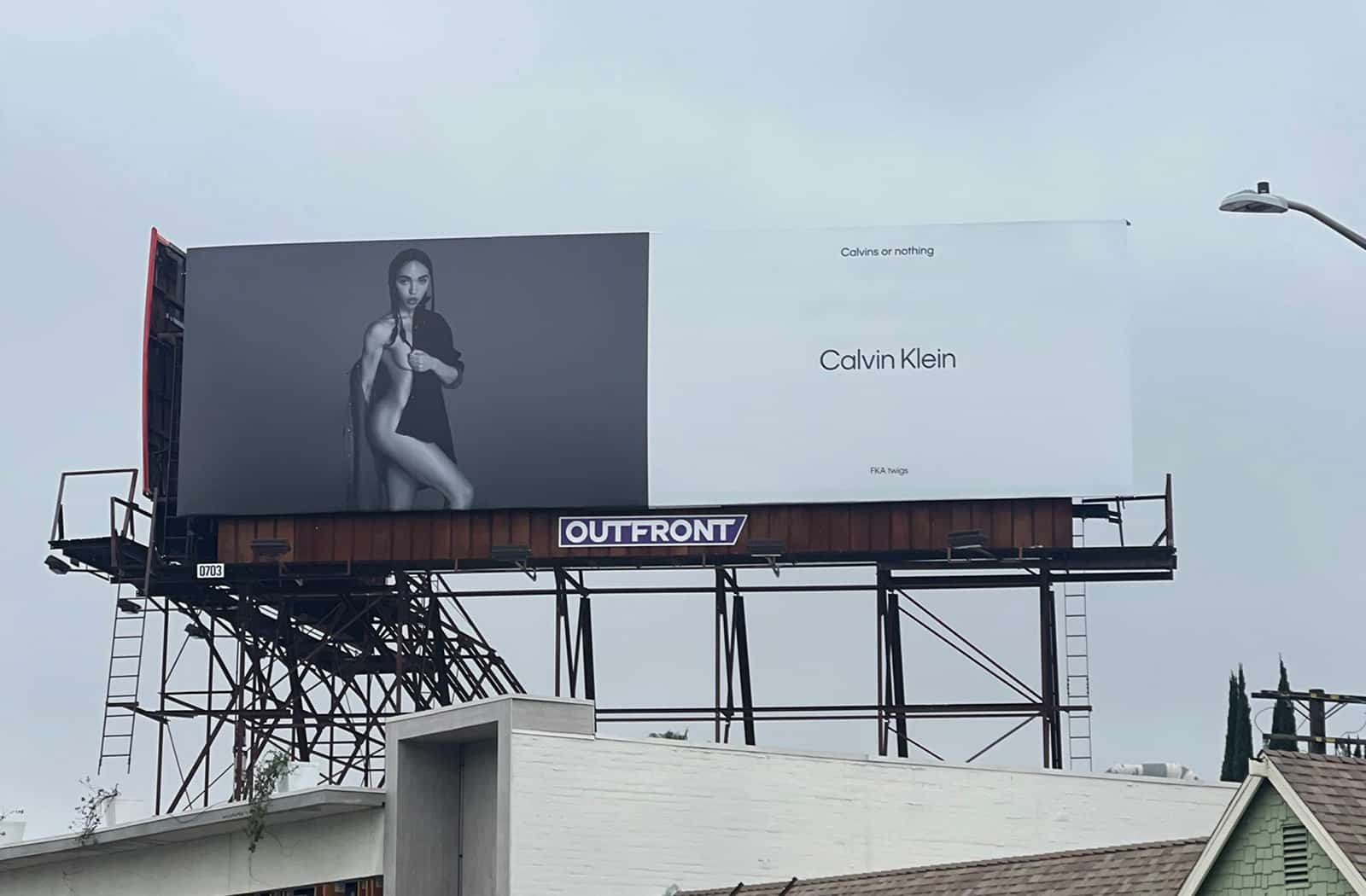
January Legal Roundup: Heinz Beans, Calvin Klein and Eurostar
Key legal developments in promotional marketing this January. Our roundup delves into the ASA’s rulings on Heinz and Eurostar’s promotions, Calvin Klein’s controversies, and the CMA’s new digital market strategies.
02 February, 2023
In our January Legal Roundup, we take a comprehensive look at the world of promotional marketing, from recent rulings by the Advertising Standards Authority (ASA) to new legislation by The UK’s Competition and Markets Authority (CMA). January has been a month of contrasts, featuring both exciting new promotions and high-profile controversies. From misleading promotions by HJ Heinz Foods UK and Eurostar to debates surrounding objectification in Calvin Klein’s campaign featuring FKA Twigs and Kendall Jenner. The CMA has outlined a strategic vision for digital markets and initiated a review into supermarket loyalty pricing. Join us as we dive into these on-going developments and their impact on the promotional marketing industry.
Heinz Free Dayz Out: What Went Wrong?
Summary: The ASA’s enforced action against HJ Heinz Foods UK for failing to disclose significant conditions in its “Free Dayz Out” promotion.
The ASA’s action against HJ Heinz Foods UK for its “Free Dayz Out” promotion, ruled on 24 January 2024, underscores the necessity of fully disclosing significant promotion conditions. This campaign allowed consumers to enjoy free events and activities upon purchasing relevant products. However, failed to disclose key limitations: it was only available to consumers aged 18 and over, required claims to be made by a specific date (31 October 2023), and imposed restrictions on the number of claims per product and per day. Unfortunately, these significant conditions were missing from the promotion’s advertising. Heinz defended the promotion’s success and argued that space constraints forced them to direct consumers to a detailed terms and conditions page via a QR code. However, the ASA disagreed, ruling that this approach was insufficient and failed to include essential information directly.
Eurostar’s £39 Fare Promotion
Summary: Eurostar’s £39 fare promotion illustrates the challenges in ensuring promotional claims match consumer expectations for availability.
The Eurostar’s £39 fare promotion to Paris, Brussels, and Lille faced an ASA ruling on 3 January 2024 for failing to meet consumer expectations of availability. Eurostar claimed that they had made 39,000 seats available at this price. However, a consumer complaint arose when someone was unable to purchase tickets from London to Paris at the advertised price of £39. Eurostar argued that a total of 39,000 seats had been available at the advertised “from” price across the routes, which they believed was a significant number, giving consumers a reasonable chance of obtaining the lowest advertised fare. However, the ASA ruled that consumers would understand the ad to mean that a significant proportion of fares to the advertised locations of Paris, Brussels or Lille would be available to buy at £39 throughout August and September and have a reasonable chance of obtaining them.
Viagogo’s NME Advertorials
Summary: Misleading advertorials in NME implied that Viagogo was a trustworthy platform for buying resale tickets, despite event organisers explicitly prohibiting ticket resale.
The ASA ruling against Viagogo on 10 January 2024 demonstrates the fine line between promotion and misleading advertising in the resale ticket market. Viagogo was criticized in two advertorials published in NME: one promoting summer gigs at Hyde Park and another offering advice on acquiring Taylor Swift ‘Eras’ tour tickets. Both of which implied that Viagogo was a reliable marketplace for purchasing resale tickets, even though the events featured explicitly prohibited ticket resale, as pointed out by the anti-touting group FanFair Alliance, which filed the complaint. Viagogo defended its advertisements, claiming that the platform only facilitated the availability of tickets and did not suggest it was an official primary ticket outlet. However, the ASA found that the ads omitted crucial information about entry restrictions, thus misleading consumers about the risk of being refused entry with resold tickets.
CMA’s Blueprint for Digital Markets
Summary: CMA announces provisional strategy to implement the Digital Markets, Competition and Consumers Bill, highlighting efforts to address competitive barriers in digital markets.
On 30 January 2024, the UK’s Competition and Markets Authority (CMA) has outlined its provisional strategy for the implementation of the Digital Markets, Competition and Consumers Bill (DMCC Bill), as it navigates through Parliament. This document outlines the CMA’s enhanced tools and authority to address competitive barriers within digital markets, notably through the designation of firms with Strategic Market Status (SMS). The DMCC Bill aims to empower the CMA to foster competition, ensure fair deals for consumers, and stimulate economic growth by addressing potential harms in the digital sector, such as innovation blockades, misuse of market power, and efforts to expand dominance. This initiative reflects the CMA’s commitment to protecting competition and curbing unfair practices, with a focus on delivering significant benefits across the UK’s digital landscape.
Calvin Klein, FKA Twigs and Kendall Jenner
Summary: ASA’s mixed ruling on Calvin Klein’s campaign with FKA Twigs and Kendall Jenner strikes a fine line between empowerment and objectification in advertising.
On 10 January 2024, the ASA made a notable decision on Calvin Klein’s advertising campaign featuring FKA Twigs and Kendall Jenner. This advertising campaign, featuring provocative images of the two celebrities, faced criticism for its perceived objectification of women, prompting the ASA to investigate two main issues. The authority upheld complaints against one specific ad (ad a) featuring FKA Twigs. This particular image was considered irresponsible and likely to cause serious offense due to its objectifying portrayal, emphasising the model’s exposed body parts rather than promoting the clothing brand she was meant to represent. In contrast, the ASA did not uphold complaints against the other two ads (ads b and c) featuring Kendall Jenner. The authority determined that, despite their sexual elements, these ads did not objectify the model to the extent of causing serious or widespread offense.
January’s Promotional Marketing Roundup
January 2024 has served as a clear warning that even big brands can get on-pack promotions wrong. From the ASA’s intervention against HJ Heinz Foods UK, we learned that the failure to transparently disclose significant conditions will be met with severe consequences. The Eurostar’s £39 fare campaign reinforced the importance of aligning promotional claims with consumer expectations. While Calvin Klein’s campaign with FKA Twigs and Kendall Jenner revealed the fine line between empowerment and objectification. In other news, the Competition and Markets Authority (CMA) has outlined its provisional strategy for implementing the Digital Markets, Competition and Consumers Bill (DMCC Bill), aiming to foster competition, protect consumers, and stimulate economic growth in the digital sector. Now the spotlight shifts to loyalty pricing in the groceries sector which looks to be a key talking point in February. As we continue to navigate this dynamic legal landscape, these insights serve as guiding principles for responsible advertising, ethical promotional campaigns, and the protection of consumer interests.
News
Agencies Hail CORE A Game-Changer for Experiential Insights
Agencies Hail CORE A Game-Changer for Experiential Insights. Secure 1 weeks access for non-IPM members.
Beyond the Rainbow: Growing Your Brand with Pride
Discover how brands can genuinely support the LGBTQIA+ community at Pride 2024.
Plunge into a Summer Review of ASA Promotion Rulings 2024
Dive into our Summer Review of ASA Promotion Rulings 2024.
02 February, 2023
In our January Legal Roundup, we take a comprehensive look at the world of promotional marketing, from recent rulings by the Advertising Standards Authority (ASA) to new legislation by The UK’s Competition and Markets Authority (CMA). January has been a month of contrasts, featuring both exciting new promotions and high-profile controversies. From misleading promotions by HJ Heinz Foods UK and Eurostar to debates surrounding objectification in Calvin Klein’s campaign featuring FKA Twigs and Kendall Jenner. The CMA has outlined a strategic vision for digital markets and initiated a review into supermarket loyalty pricing. Join us as we dive into these on-going developments and their impact on the promotional marketing industry.
Heinz Free Dayz Out: What Went Wrong?
Summary: The ASA’s enforced action against HJ Heinz Foods UK for failing to disclose significant conditions in its “Free Dayz Out” promotion.
The ASA’s action against HJ Heinz Foods UK for its “Free Dayz Out” promotion, ruled on 24 January 2024, underscores the necessity of fully disclosing significant promotion conditions. This campaign allowed consumers to enjoy free events and activities upon purchasing relevant products. However, failed to disclose key limitations: it was only available to consumers aged 18 and over, required claims to be made by a specific date (31 October 2023), and imposed restrictions on the number of claims per product and per day. Unfortunately, these significant conditions were missing from the promotion’s advertising. Heinz defended the promotion’s success and argued that space constraints forced them to direct consumers to a detailed terms and conditions page via a QR code. However, the ASA disagreed, ruling that this approach was insufficient and failed to include essential information directly.
Eurostar’s £39 Fare Promotion
Summary: Eurostar’s £39 fare promotion illustrates the challenges in ensuring promotional claims match consumer expectations for availability.
The Eurostar’s £39 fare promotion to Paris, Brussels, and Lille faced an ASA ruling on 3 January 2024 for failing to meet consumer expectations of availability. Eurostar claimed that they had made 39,000 seats available at this price. However, a consumer complaint arose when someone was unable to purchase tickets from London to Paris at the advertised price of £39. Eurostar argued that a total of 39,000 seats had been available at the advertised “from” price across the routes, which they believed was a significant number, giving consumers a reasonable chance of obtaining the lowest advertised fare. However, the ASA ruled that consumers would understand the ad to mean that a significant proportion of fares to the advertised locations of Paris, Brussels or Lille would be available to buy at £39 throughout August and September and have a reasonable chance of obtaining them.
Viagogo’s NME Advertorials
Summary: Misleading advertorials in NME implied that Viagogo was a trustworthy platform for buying resale tickets, despite event organisers explicitly prohibiting ticket resale.
The ASA ruling against Viagogo on 10 January 2024 demonstrates the fine line between promotion and misleading advertising in the resale ticket market. Viagogo was criticized in two advertorials published in NME: one promoting summer gigs at Hyde Park and another offering advice on acquiring Taylor Swift ‘Eras’ tour tickets. Both of which implied that Viagogo was a reliable marketplace for purchasing resale tickets, even though the events featured explicitly prohibited ticket resale, as pointed out by the anti-touting group FanFair Alliance, which filed the complaint. Viagogo defended its advertisements, claiming that the platform only facilitated the availability of tickets and did not suggest it was an official primary ticket outlet. However, the ASA found that the ads omitted crucial information about entry restrictions, thus misleading consumers about the risk of being refused entry with resold tickets.
CMA’s Blueprint for Digital Markets
Summary: CMA announces provisional strategy to implement the Digital Markets, Competition and Consumers Bill, highlighting efforts to address competitive barriers in digital markets.
On 30 January 2024, the UK’s Competition and Markets Authority (CMA) has outlined its provisional strategy for the implementation of the Digital Markets, Competition and Consumers Bill (DMCC Bill), as it navigates through Parliament. This document outlines the CMA’s enhanced tools and authority to address competitive barriers within digital markets, notably through the designation of firms with Strategic Market Status (SMS). The DMCC Bill aims to empower the CMA to foster competition, ensure fair deals for consumers, and stimulate economic growth by addressing potential harms in the digital sector, such as innovation blockades, misuse of market power, and efforts to expand dominance. This initiative reflects the CMA’s commitment to protecting competition and curbing unfair practices, with a focus on delivering significant benefits across the UK’s digital landscape.
Calvin Klein, FKA Twigs and Kendall Jenner
Summary: ASA’s mixed ruling on Calvin Klein’s campaign with FKA Twigs and Kendall Jenner strikes a fine line between empowerment and objectification in advertising.
On 10 January 2024, the ASA made a notable decision on Calvin Klein’s advertising campaign featuring FKA Twigs and Kendall Jenner. This advertising campaign, featuring provocative images of the two celebrities, faced criticism for its perceived objectification of women, prompting the ASA to investigate two main issues. The authority upheld complaints against one specific ad (ad a) featuring FKA Twigs. This particular image was considered irresponsible and likely to cause serious offense due to its objectifying portrayal, emphasising the model’s exposed body parts rather than promoting the clothing brand she was meant to represent. In contrast, the ASA did not uphold complaints against the other two ads (ads b and c) featuring Kendall Jenner. The authority determined that, despite their sexual elements, these ads did not objectify the model to the extent of causing serious or widespread offense.
January’s Promotional Marketing Roundup
January 2024 has served as a clear warning that even big brands can get on-pack promotions wrong. From the ASA’s intervention against HJ Heinz Foods UK, we learned that the failure to transparently disclose significant conditions will be met with severe consequences. The Eurostar’s £39 fare campaign reinforced the importance of aligning promotional claims with consumer expectations. While Calvin Klein’s campaign with FKA Twigs and Kendall Jenner revealed the fine line between empowerment and objectification. In other news, the Competition and Markets Authority (CMA) has outlined its provisional strategy for implementing the Digital Markets, Competition and Consumers Bill (DMCC Bill), aiming to foster competition, protect consumers, and stimulate economic growth in the digital sector. Now the spotlight shifts to loyalty pricing in the groceries sector which looks to be a key talking point in February. As we continue to navigate this dynamic legal landscape, these insights serve as guiding principles for responsible advertising, ethical promotional campaigns, and the protection of consumer interests.
News
Agencies Hail CORE A Game-Changer for Experiential Insights
Agencies Hail CORE A Game-Changer for Experiential Insights. Secure 1 weeks access for non-IPM members.
Beyond the Rainbow: Growing Your Brand with Pride
Discover how brands can genuinely support the LGBTQIA+ community at Pride 2024.
Plunge into a Summer Review of ASA Promotion Rulings 2024
Dive into our Summer Review of ASA Promotion Rulings 2024.







